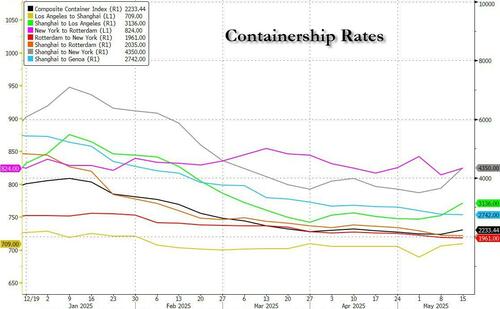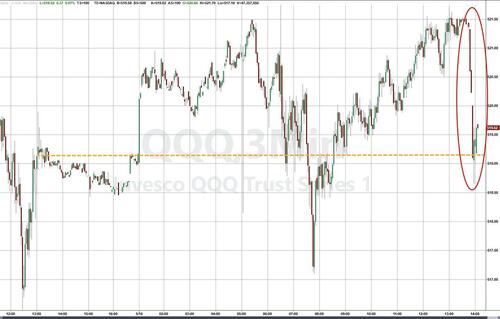Trump Administration Investigating Publisher of COVID Origins Paper for Corruption, Citing Influence by Fauci

Source: Children’s Health Defense
The Trump administration is looking into whether the authors and publisher of an influential scientific paper published early during the COVID-19 pandemic allowed Dr. Anthony Fauci and others to influence the paper’s conclusions in exchange for funding, The Disinformation Chronicle reported Tuesday.
In March 2020, Nature Medicine published “The proximal origin of SARS-CoV-2,” which concluded that COVID-19 had a zoonotic, or animal, origin. It became one of that year’s most-cited papers, accessed over 6 million times. In 2023, The Nation reported that over 2,000 media outlets cited the paper.
In a previously unreported letter, sent March 28 to Joao Monteiro, M.D., Ph.D., publisher of Nature Medicine, then-interim U.S. Attorney for the District of Columbia Edward R. Martin Jr., questioned whether the journal advocated views that were “influenced by your ongoing relationships with supporters, funders, advertisers, and others.”
Martin requested a response by April 18. It’s unclear if Monteiro complied.
The letter was one of several Martin sent to editors of medical journals, questioning their impartiality.
However, The Disinformation Chronicle, citing a source inside the U.S. Department of Health and Human Services, said “the actual target” of Martin’s letters is Nature Medicine, publisher of the influential “Proximal Origin” paper.
The paper helped discredit proponents of the lab-leak theory, who suggested that COVID-19 emerged from the Wuhan Institute of Virology in China. Scientists, government officials and media outlets widely cited the paper in an attempt to characterize proponents of the lab-leak theory as conspiracy theorists.
In a March 2020 tweet, Monteiro said the paper would “help to stop spread of misinformation” and “put conspiracy theories about the origin of #SARSCoV2 to rest.”
During an April 2020 White House briefing, Fauci said the study provided evidence “totally consistent with a jump of species from an animal to a human.”
‘Not some fringe theory’
In his letter to Monteiro, Martin wrote that some journals “have a position for which they are advocating due to advertisement … or sponsorship,” suggesting a quid pro quo relationship that may violate fraud and postal regulations.
Martin, whom President Donald Trump selected earlier this month to lead a new Weaponization Working Group inside the U.S. Department of Justice, also asked Monteiro how he responds to allegations that his journal may have misled readers.
A source close to the investigation told The Disinformation Chronicle that Martin’s letter pertains to a grant Fauci awarded to two “Proximal Origin” co-authors, Kristian Andersen, Ph.D., a professor of immunology and microbiology at the Scripps Research Institute, and Robert F. Garry, Ph.D., a professor of microbiology and immunology at the Tulane School of Medicine, a few months after the paper was published.
Andersen and Garry were initially skeptical about dismissing the lab-leak theory. But emails and documents revealed through a congressional investigation and some media outlets revealed that, under pressure from Fauci and other key public health figures, Andersen and Garry fully endorsed the zoonotic theory in “Proximal Origin.”
In a Feb. 1, 2020, email and call between Fauci and several virologists, including Andersen, the participants expressed concern that COVID-19 might have been manipulated instead of originating in nature.
Transcripts revealed by The Nation in July 2023 showed that, in a February 2020 Slack thread, Andersen wrote to other virologists that “the main issue is that accidental release is in fact highly likely — it’s not some fringe theory.”
In a Feb. 17, 2020, email, Jeremy Farrar, Ph.D., the then-director of the Wellcome Trust who later became the World Health Organization’s chief scientist and assistant director-general, asked Andersen to make a last-minute change to the draft of “Proximal Origin,” from “It is unlikely” to “It is improbable that SARS-CoV-2 emerged through laboratory manipulation of an existing SARS-related coronavirus.” Andersen agreed.
Privately, though, the scientists maintained their skepticism. In 2023, Racket and Public reported that Andersen sent a Slack message to his co-authors of “Proximal Origin” in April 2020, writing, “I’m still not fully convinced that no culture was involved. We also can’t fully rule out engineering (for basic research).”
Fauci and officials, including Dr. Francis Collins, then-director of the National Institutes of Health (NIH), were closely involved in the drafting and publication of “Proximal Origin.” On March 6, 2020, Andersen emailed Fauci and Collins a draft of “Proximal Origins,” thanking them for “their ‘advice and leadership’ on the paper.”
After the paper’s publication on March 17, 2020, Collins promoted the paper in the March 2020 edition of the NIH Director’s Blog. And on May 21, 2020, the NIH finalized a $1.88 million grant to Andersen and the Scripps Research Institute relating to pandemic preparedness in West Africa.
In sworn testimony in July 2023 as part of a congressional investigation, Andersen said there was “no connection” between the conclusions reached in “Proximal Origin” and the subsequent NIH grant he received. However, in a report later that month, The Intercept revealed documents showing that Andersen “knew that was false.”
The investigation found that “extensive influence” by the NIH, Collins and Fauci, combined with a “flawed analysis” characterized by “an alarming lack of evidence,” led to the publication of “Proximal Origin,” even though its “expressed conclusions were not based on sound science nor in fact, but instead on assumptions.”
The Disinformation Chronicle noted that, despite Farrar and Fauci’s involvement in the publication of “Proximal Origin,” they were not named as co-authors, likely violating Nature’s editorial policy.
According to Nature policy, “A specific role for the funder in the conceptualization, design, data collection, analysis, decision to publish, or preparation of the manuscript, should be disclosed.”
In a guest essay published in The Disinformation Chronicle, an anonymous NIH infectious disease researcher also suggested that the “Proximal Origin” paper contains methodological flaws that ignored evidence of the lab-leak theory, calling into question Nature Medicine’s peer-review process.
Nature Medicine has not withdrawn ‘Proximal Origin’ despite lab-leak evidence
Last month, the Trump administration launched a new version of the government’s official COVID-19 website, presenting evidence that COVID-19 emerged due to a leak at the Wuhan Institute of Virology.
The CIA, FBI, U.S. Department of Energy, U.S. Congress and other intelligence agencies have previously endorsed this theory.
Yet, to this day, Nature Medicine has not withdrawn “Proximal Origin,” despite an online petition calling for its retraction by Biosafety Now, a non-governmental organization advocating for reducing the number of high-level biocontainment laboratories. The petition has collected 5,700 signatures.
Instead, according to The Disinformation Chronicle, Martin’s letters to the editors of medical journals were the subject of attack by several mainstream media outlets.
For example, The New York Times wrote that the letters “will have a chilling effect on publications,” while The Washington Post said the letters trigger “free-speech concerns.”
Yet, Martin’s letter to Monteiro suggested that Nature Medicine had, in fact, perpetuated misinformation. “How do you handle allegations that authors of works in your journals may have misled their readers?” Martin asked.
Scientists and researchers have accused medical journals and their publishers, including Springer Nature, the world’s largest academic publisher, of censorship.
A peer-reviewed study published in 2022 found that researchers who questioned establishment positions on COVID-19 faced several professional consequences, including rejection or retraction of journal articles.
In April 2024, the U.S. House of Representatives invited the editors of three major scientific journals, including Nature, The Lancet and Science, to testify about potential censorship. Only Holden Thorp, Ph.D., editor-in-chief of the Science family of journals, accepted the invitation.
During his U.S. Senate confirmation hearing in March, NIH Director Jay Bhattacharya criticized scientific censorship, saying that “top NIH officials oversaw a culture of cover-up, obfuscation and a lack of tolerance for ideas that differ from theirs.”
Bhattacharya promised to “actively encourage different perspectives.”
Related articles in The Defender
- New White House Website Declares COVID Escaped From Wuhan Lab
- Watch: Fauci Is ‘A Pathological Liar,’ Journalist Says
- Key Bioweapons Official Publicly Accuses Fauci of ‘Denial and Deception’ on COVID Origins
- Officials With Ties to Wuhan Institute Still Conspiring to Discredit Theory That COVID May Have Leaked From Lab
- Fauci, Other ‘Bethesda Boys’ Colluded to Suppress COVID Lab-Leak Theory, U.S. House Committee Report Finds
- Private Emails Show NIH Officials Helped Persuade Virologists to Write Key Article Denouncing COVID Lab-Leak Theory
- Fauci Aide Destroyed Sensitive Emails, Used Private Gmail Account to Hide NIAID Ties to Wuhan
- Watch: ‘They Want to Scare Us Into Silence’

















